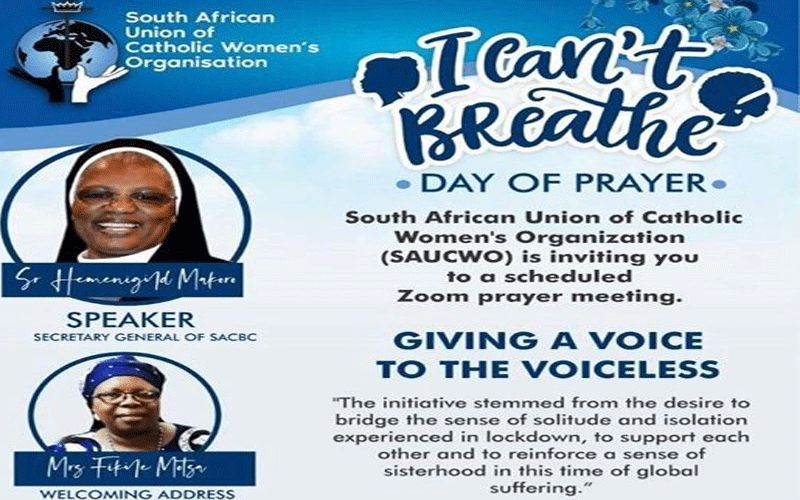Johannesburg, 13 August, 2020 / 9:02 pm (ACI Africa).
The South African arm of the World Union of Catholic Women’s Organizations (WUCWO), an international entity for Catholic women groups, is organizing for prayers slated for later this month to express solidarity with women who are suffering from solitude and isolation that comes with the COVID-19 lockdown, an official has told ACI Africa.
In an interview with ACI Africa concerning the planned August 24 zoom session, South African Union of Catholic Women’s Organization (SAUCWO) Secretary, Mahadi Buthelezi said that women in South Africa have been adversely affected by the COVID-19 lockdown, which has left some suffering depression from the burden of caring for their families amid harsh economic times.
“Life has never been the same since the COVID-19 lockdown was declared in South Africa. Women, in particular, have undergone immense suffering,” Ms. Buthelezi said in the Thursday, August 13 interview.
Some of the COVID-19-related challenges that are specific to women in South Africa, according to the SAUCWO official, is the psychological burden of worrying for the safety of their families amid their own fears of contagion.
“Everything about this lockdown works against the women, including working from home,” she says, and adds, “The house chores and the entire family responsibilities has been heaved on the woman’s shoulders and now they spent a lot of time worrying about whether their family members are keeping safe and worrying about their own safety as well.”








